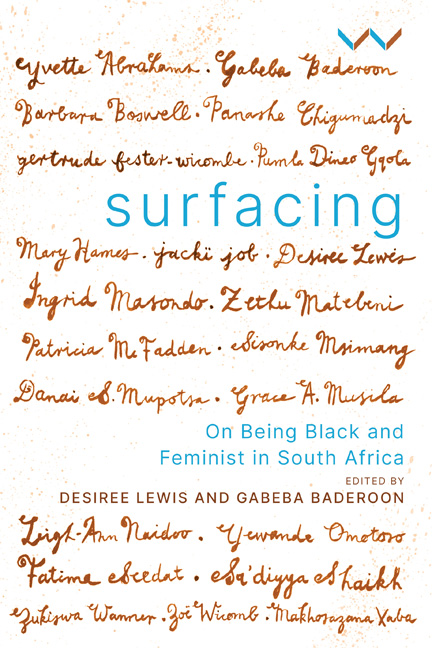Book contents
Chapter 19 - Bringing Water to Krotoa’s Gardens: Decolonisation as Direct Action
Published online by Cambridge University Press: 15 April 2021
Summary
Friends, let's talk, laugh a little and shed a tear
or two over tea/See those crumbs over
there/it's enough dough to bake a cake
to serve a different reality today.
Colonialism could be so overwhelmingly patriarchal. Jan van Riebeeck no doubt did not see the irony when he observed, in his diary entry for 28 and 29 April 1656:
Fine sunshine, wind variable; a lot of carrots put into the ground, and a morgen of ground sown with wheat. The rainy season having commenced the time has arrived to prepare the empty plots and new acres, and fill them with European seeds; work zealously commenced.
From the indigenous point of view, his actions seemed ludicrous. In the vicinity of the clay-and-wood fort his troops had built, the ground, already filled with local plants providing a wide variety of food, medicine and cosmetics, was cleared, dug up, and replanted with ‘European seed’, which regularly keeled over in the wind or dried out in our hot dry summers. With indigenous plants, the autumn was traditionally a season of harvest, where the clans gathered much before their annual migration north and eastwards. In Van Riebeeck's diary, it is a season of scarcity and hard work, recovering from drought and ploughing new ground for sowing. A better metaphor for how colonialism created the violence of poverty from abundance cannot be imagined.
As a farmer practising indigenous knowledge systems, I have begun to see more and more starkly how absurd European farming is, simply from doing its opposite. Apart from an initial deep-trenching, made necessary by the fact that this land has been exploited for 367 years and does not possess an atom of humus in it, this earth is never dug. Instead I layer wood, manure, grass and any other organic matter I can get on the earth. Plants are allowed to die in place; any food taken from the garden is replaced by an equivalent amount of compost. There is a very friendly coffee shop down the road which gives me coffee grounds for my worm farms. I fetch it when I shop for groceries, so lots of nutrients are provided for zero additional carbon.
- Type
- Chapter
- Information
- SurfacingOn Being Black and Feminist in South Africa, pp. 274 - 283Publisher: Wits University PressPrint publication year: 2021



